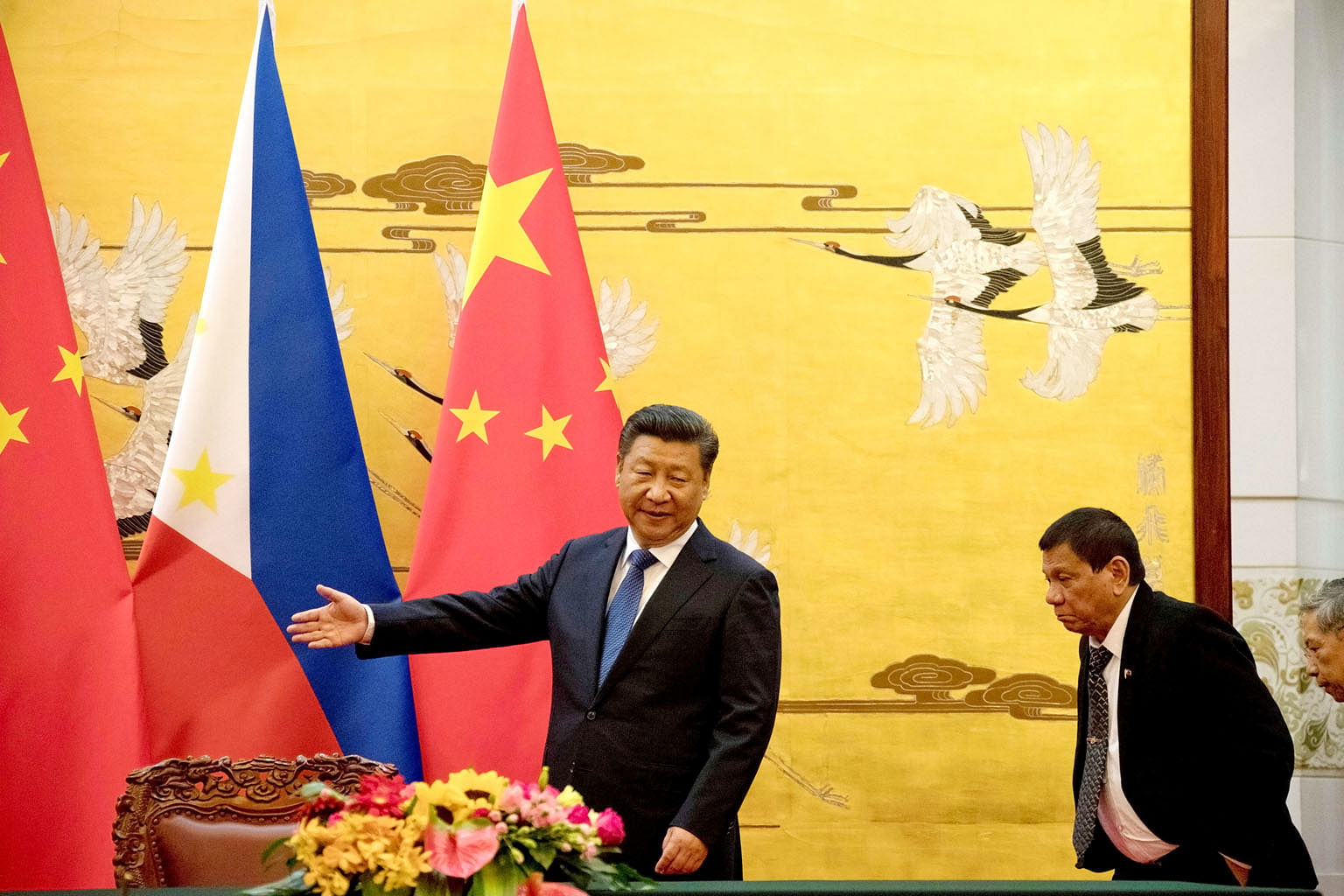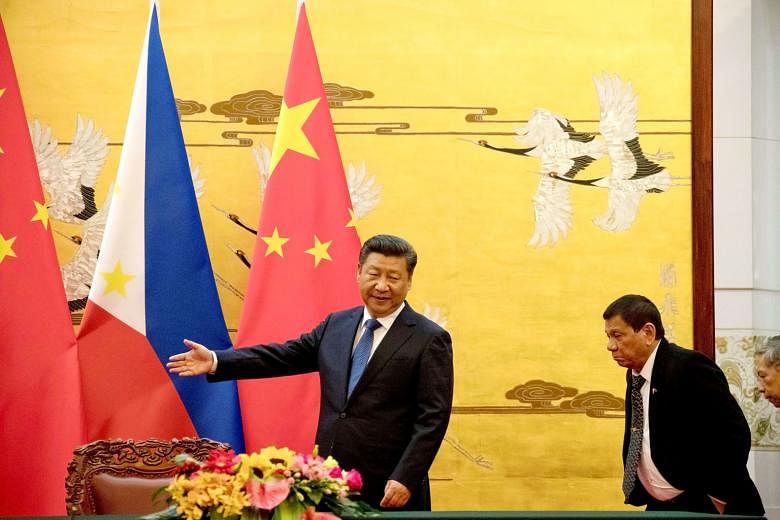The Philippine economy grew 6.8 per cent last year, which is no small feat, given that it is unquestionably served by poor and inadequate infrastructure.
Manila has always been aware that it does not have the capital or capacity to upgrade its roads, ports and airports. Not surprisingly, getting a financial lifeline from a major economy, ideally one that is next to the Philippines, has become something of a fixation for President Rodrigo Duterte. And in came China.
But less than a year into his presidency, President Duterte's rapprochement with China is faltering: Chinese capital has not poured into the Philippines, nor has any large infrastructure project taken off. On the security front, Chinese naval vessels docking in Mindanao have done nothing to improve safety. Arguably, the situation has dramatically deteriorated on the back of the resurgence of militant activity in the southern Philippines.
With American special forces now back on the ground assisting Filipino troops to regain Marawi from the Maute Group, is the Philippines silently turning back to the United States for support and is President Duterte now back at the strategic drawing board?
President Duterte's alignment with China and rupture with the US was abruptly set in motion when he declared in October last year in Beijing, whether in jest or for real, that the alliance between the Philippines and the US was "dead" and that America "has lost". What he hoped for by using such sharp words was an avalanche of infrastructure projects fuelled by cheap Chinese capital, especially to fund his cornerstone plan: a mammoth 830km railway network in Mindanao connecting the island's major cities.

President Duterte further cemented his pro-China rhetoric in April this year amid a gallery of Asean leaders when he averred that Asean should call a spade a spade: acknowledge that no one can defeat China in the South China Sea, and that it is better to find ways to co-exist with it. Vietnam's delegation bit its tongue, as did Malaysia's, even though both probably wished that President Duterte had kept quiet to allow room for strategic ambiguity on one of the world's most potent geopolitical issues.
But as the Philippines accelerated its embrace of China, President Duterte should have sensed early on that China's commitment to the Philippines was still hard in coming. In March this year, Chinese Vice-Premier Wang Yang, who was visiting Davao, told President Duterte that while China "still supported" his ambitious rail project, China was not sure "how to do it".
But it was on his trip last month to Russia that President Duterte's strategy began to implode play by play.
First, he was accused of ignoring advice from his Secretary of Defence Delvin Lorenzana that violence in Mindanao was imminent. Second, he had over-estimated the operational depth of his strategy: Russia and China were not offering him tangible support as his troops were struggling to retake Marawi.
Russia does not have the capability to deploy any military assets as it is bogged down in Syria backing the brutal dictator Bashar Al-Assad; and China would not want to be seen meddling in Mindanao as it is more focused on continuing its South China Sea military expansion.
But even if there was willingness on the part of China to provide military support to embattled Filipino troops, President Duterte's military commanders would not have necessarily played ball with him.
First, Manila's military leadership is trained by the US and the relationship goes back decades. Operation Enduring Freedom, which lasted from 2002 to 2015, saw American troops train the Philippine military in combating crime and Islamist groups in crime-infested Mindanao. By 2014, the Central Intelligence Agency had elite paramilitary officers sharing intelligence with their Filipino counterparts. The cooperation was deep, intimate and lasting.
Furthermore, a number of Filipino commanders overseeing military operations in Mindanao are former Fulbright or Eisenhower Fellows, and many more lived or have family residing in the US. So, when President Duterte declared in October last year that "Filipinos in America are not Filipinos any more, they're Americans", he just might have infuriated some of his military confidantes.
But the Philippines' military forces were most irked by their President when he dragged them into his drug war, sapping the armed forces' strategic capabilities, with no end in sight.
The rift between Malacanang and the military finally erupted earlier this month when military commanders decided to take matters into their own hands: They called upon the assistance of US Special Forces to retake Marawi from terrorists. President Duterte insisted he did not request American involvement in Mindanao and conceded on June 11 that "our soldiers are pro-American, that I cannot deny", hinting that his commanders might have bypassed him in enlisting American help. This surprising turn of events shows, arguably, that President Duterte may not be the strong leader he portrays himself to be.
He is in the unenviable position of having to reassess major policies a year into his presidency: The praise he had for China and Russia delivered very little in return.
In the meantime, the delays in the President's infrastructure plans are adding up, and peace in Mindanao seems more elusive than ever as Marawi turns into an unprecedented humanitarian catastrophe. If Mr Duterte does not want to give further cause for animosity between the Bangsamoro people of Mindanao and his administration, he must urgently recanvas new security, development and infrastructure strategies.
- The writer was a Fulbright Fellow and now works as a sovereign specialist banker focusing on Asean markets. SEA View is a weekly column on South-east Asian affairs.

